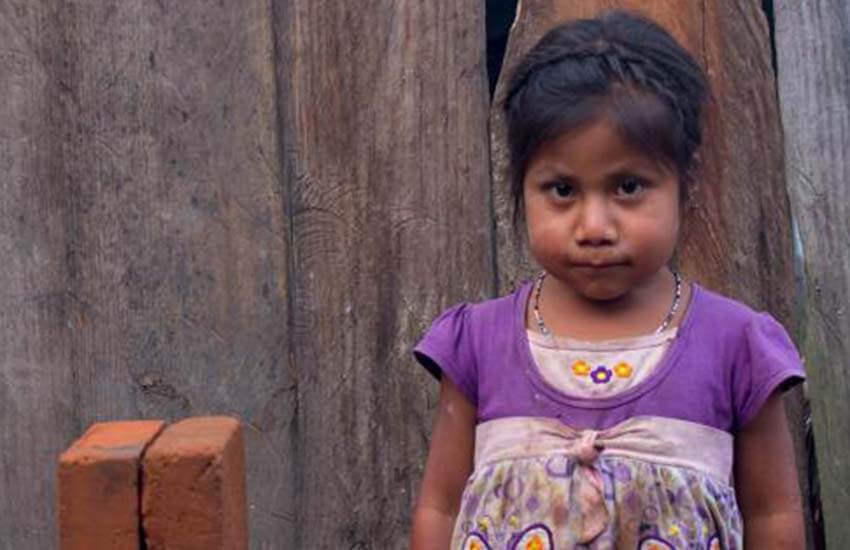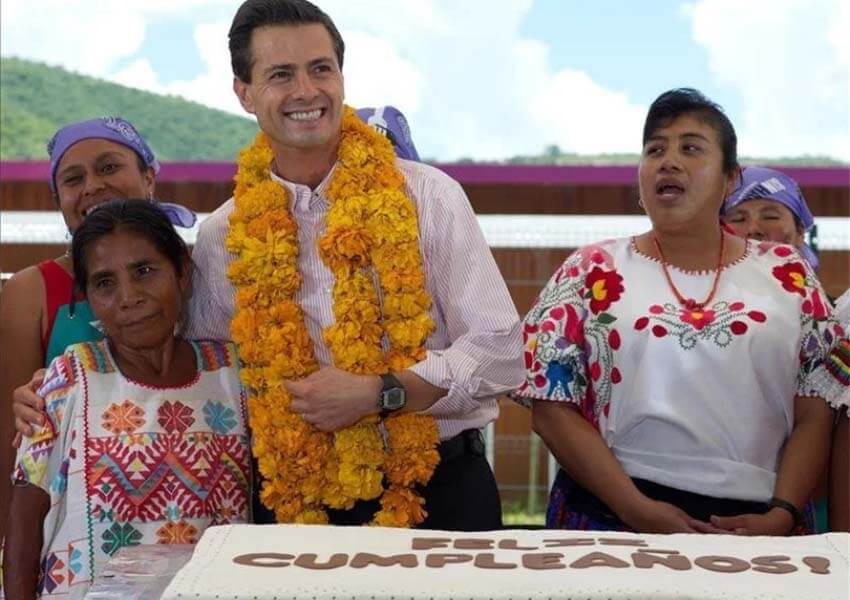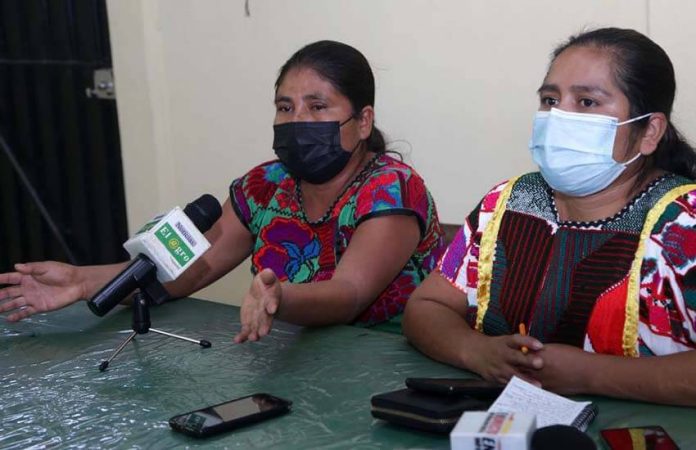Indigenous women from the Montaña region of Guerrero have accused authorities at all three levels of government of abandoning them and claim they were better off when former president Enrique Peña Nieto was in office.
Mixtec women from Cochoapa el Grande, a municipality where the practice of selling young girls into marriage is common, traveled to the state capital Chilpancingo to denounce the lack of support from authorities, particularly in the areas of health and children’s welfare.
Members of the Defensoras de Niñas (Defenders of Girls) collective also said that their communities have been stigmatized by the media and authorities because girls continue to be married off for cash. The authorities haven’t taken the necessary steps to eradicate the problem at its root, they said.
Elvira García Rodríguez, a spokeswoman and interpreter for the collective, told a press conference that brigades of health workers traveled to communities in Cochoapa el Grande at least once a month during the 2012–18 government of Peña Nieto.
That allowed local people to obtain medical treatment, she said, explaining that residents don’t have the money to travel to hospitals and clinics outside the municipality.

“Now we’re completely abandoned,” García said. There is a lack of both doctors and medications in Cochoapa el Grande, she also said.
“… People die from a scorpion sting because there’s no way to treat them,” she said.
Since the current federal government took office, she said, “There’s no medical brigade that visits the towns to provide care to pregnant women, children and sick people. There’s nothing [in the way of medical care] in the communities, and people are very annoyed.”
García also said that the current government has made welfare payments to mothers contingent on their children being enrolled in school. “But in the majority of indigenous towns, there are no schools, so unfortunately that support doesn’t arrive,” she said.
“The benefits reach a few communities where there are schools nearby, but they don’t get to everyone who needs them,” García said.
In addition to calling for the resumption of visits by medical brigades, the Mixtec women urged federal and state authorities to dispatch officials to help seniors enroll in welfare programs.

“People don’t know how to fill out the forms or where to get some of the things they need. There’s nobody to guide them; that’s the case with seniors,” García said.
“We want the members of [President López Obrador’s] cabinet … to set foot on that land [Cochoapa el Grande]. We want people to translate so that the officials know how to deal with them because there are a lot of people who don’t speak Spanish,” she said.
Turning to the issue of child marriage, García and the other women said the practice of selling girls can be combatted through education and programs that ensure families have enough to eat. Child marriage in Mexico is most common in poor southern states such as Guerrero, Oaxaca and Chiapas, where parents might see the sale of their daughter as a means to alleviate poverty.
García expressed doubt that a recently-announced federal, state and municipal strategy to prevent violence against women and girls in the Montaña and Costa Chica regions of Guerrero and put an end to forced and arranged marriages will succeed in the short term. In Cochoapa el Grande, nothing is known about the strategy, she said before calling for its details to be disseminated.
García also urged Guerrero Governor Evelyn Salgado to visit the region and observe the conditions in which people live.
In Cochoapa el Grande, the women said, hundreds of families live in extreme poverty without food security and education that would allow them to find work opportunities outside the municipality.

The director of the Montaña Tlachinollan Human Rights Center said agreements have been reached for at least four marriages involving minors to occur since the November 10 announcement of the anti-violence strategy. It was not clear whether, to date, those four marriages have proceeded.
Abel Barrera Hernández also said that authorities have failed to properly look after two teenage girls who were recently jailed in Cochoapa el Grande, one after fleeing her home to avoid an arranged marriage and the other after running away from the home of her father-in-law, who allegedly attempted to rape her.
“They’re adrift; it’s not known if they’ll be able to return to their towns or whether they’ll be directed into a program … [to help them] rebuild their lives,” he said, adding that both girls are currently displaced.
With reports from Milenio
